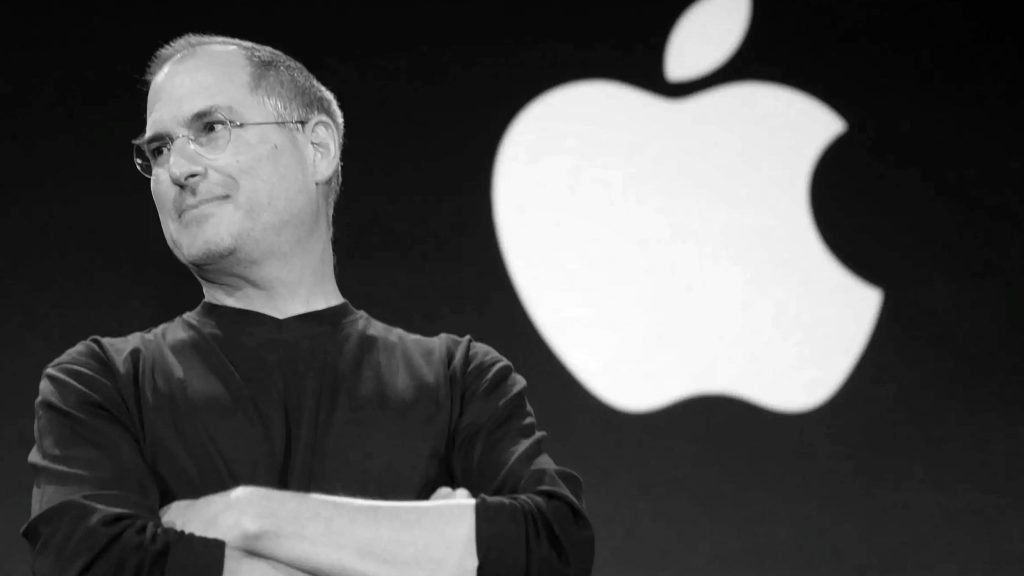Steve Jobs: the visionary entrepreneur who changed the world

Steve Jobs, el empresario que cambió la industria tecnológica.
When it comes to successful entrepreneurs, few names carry as much weight as Steve Jobs. He revolutionized the tech industry and transformed the way people around the world interact with technology. From the Macintosh computer to the iPod, iPhone, and iPad, Jobs’ innovations have become staples of modern society.
Early life and career
Steve Jobs was born on February 24, 1955, in San Francisco, California, to Joanne Schieble and Abdulfattah Jandali, who placed him for adoption. He was adopted by Paul and Clara Jobs, who raised him in Mountain View, California. Jobs showed an early interest in technology and often spent time tinkering with electronics in his father’s garage.
Jobs attended Reed College in Portland, Oregon, but dropped out after six months. He continued auditing classes informally and took calligraphy courses, which he later credited for the typography and design emphasis in Apple products.
In 1974, Jobs returned to California and began attending meetings of the Homebrew Computer Club with Steve Wozniak, whom he had met while working at Hewlett-Packard. Together, they began building computers in Jobs’ garage and eventually founded Apple Computer Inc. in 1976.
Apple Computer Inc.
Apple’s first product, the Apple I, went on sale in 1976 for $666.66. The company’s second product, the Apple II, launched in 1977 and became a massive success, selling over 2 million units. The Apple II was the first personal computer with color graphics and was marketed to families and small businesses.
In 1983, Jobs hired former PepsiCo CEO John Sculley to lead Apple. A power struggle followed, and in 1985, Jobs was forced out of the company he had helped create.
NeXT Computer Inc.
After leaving Apple, Jobs founded NeXT Computer Inc., a company focused on high-end computers for the education and business markets. While its products were praised for innovation, they were expensive, and NeXT struggled to capture significant market share.
Pixar Animation Studios
In 1986, Jobs purchased a computer graphics division from filmmaker George Lucas and turned it into Pixar. The studio initially produced short films and commercials, but in 1995 released Toy Story, the first full-length computer-animated movie. Toy Story was a critical and commercial success, launching Pixar to the forefront of the animation industry.
Return to Apple
In 1996, Apple was facing financial difficulties, and its board invited Jobs to return as interim CEO. He agreed and quickly began restructuring the company. He streamlined the product line, cut unprofitable projects, and introduced revolutionary new products like the iMac, iPod, and iPhone.
Under Jobs’ leadership, Apple’s revenue grew from $7.1 billion in 1997 to $108 billion in 2011. Apple became the most valuable company in the world, with a market capitalization exceeding $600 billion.
Legacy
Steve Jobs passed away on October 5, 2011, at the age of 56, following a long battle with pancreatic cancer. He left behind a legacy of innovation and entrepreneurship that continues to inspire people worldwide.
Jobs’ success can be attributed to his vision, attention to detail, and marketing genius. He was known for his charismatic personality and demanding management style, which sometimes created tension but also pushed teams to deliver extraordinary results.
Jobs’ impact on the tech industry cannot be overstated. He popularized the personal computer, introduced the graphical user interface, and helped make technology more accessible and user-friendly. His vision of elegant design paired with powerful and intuitive software became Apple’s hallmark.
He also played a central role in the rise of the smartphone industry. The iPhone’s launch in 2007 disrupted the mobile phone market and set the stage for the global smartphone revolution. Today, smartphones are an essential part of modern life, with over 3 billion users worldwide.
Beyond his technological innovations, Jobs was known for his leadership style. Though demanding and sometimes controversial, his passion and commitment to excellence inspired his teams to build world-changing products.
Outside of Apple and Pixar, Jobs was also a philanthropist who supported causes such as education, the environment, and cancer research. In 2011, he posthumously received the Grammy Trustees Award for his contributions to the music industry.
Conclusion
Steve Jobs’ impact on technology and the world at large is impossible to exaggerate. His vision for user-friendly, cutting-edge products and his relentless pursuit of perfection reshaped computing, smartphones, and animation.
Though not without controversy, Jobs’ contributions to technology and his legacy as a visionary entrepreneur continue to inspire people across the globe. His influence will be felt for generations, and his story stands as a testament to the power of innovation, determination, and hard work.







